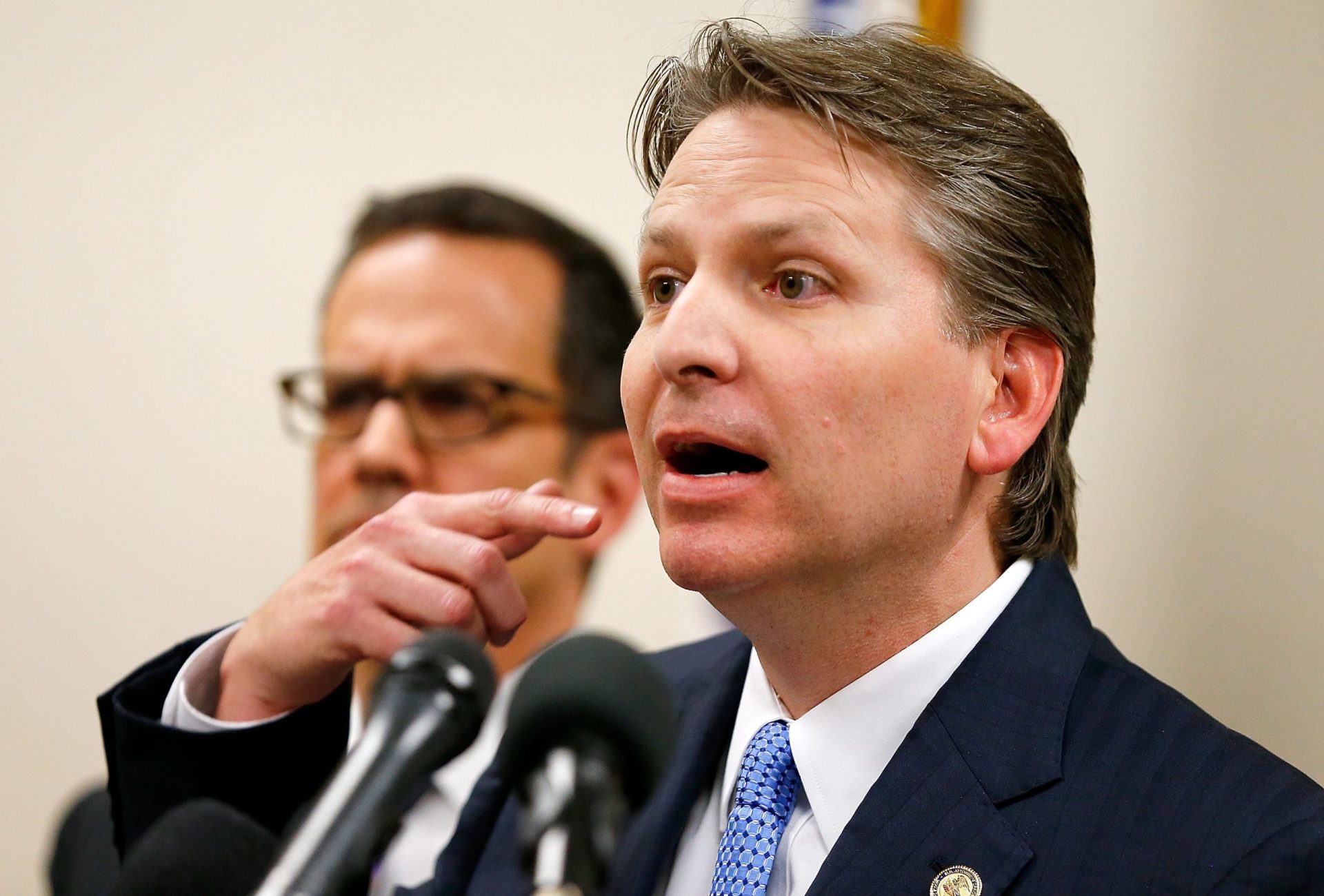Corey Amundson, who had a long and noteworthy career at the U.S. Department of Justice, has decided to step down. After more than two decades with the DOJ, Amundson, who led the Public Integrity Section, announced his resignation with a heartfelt letter. Previously, he had been reassigned to work on immigration issues during the Trump administration, which might have influenced his decision to leave.
In his letter to Acting Attorney General James McHenry, Amundson expressed his gratitude for the opportunity to serve. He highlighted his commitment to enforcing federal criminal law without political bias, ensuring that those around him shared in this mission. Despite his departure, the DOJ has remained silent, choosing not to comment on his resignation publicly.
Amundson’s journey with the DOJ began in Louisiana back in 2002, as indicated by his LinkedIn profile. About a decade ago, he moved to Washington, where he eventually took on a key role. He was appointed in 2019, during Trump’s first term, to lead the DOJ’s Public Integrity Section, overseeing significant investigations into public corruption.
Recently, Amundson was one of around 20 career officials reassigned to a new Sanctuary City Working Group. This move occurred within the associate attorney general’s office, and he wasn’t alone; George Toscas from the National Security Division joined him. Both had some involvement in the criminal investigations against Trump.
In a report, former special counsel Jack Smith noted that the Public Integrity Section was regularly consulted on various legal matters. These included serving subpoenas and bringing election fraud charges, among others. Notably, Amundson’s resignation letter didn’t mention his involvement in the Trump cases.
Instead, Amundson highlighted other significant cases he was part of, such as corruption investigations involving Rep. Henry Cuellar, former Rep. George Santos, and Fugees member Prakazrel Michel. These cases underscore the breadth of his experience and the impact of his work at the DOJ.
The DOJ has been undergoing changes, including recent reassignments and terminations of officials from Smith’s team. These actions have caught the attention of Democrats, who have raised concerns over what they see as potentially unjust treatment of skilled prosecutors. They argue that such moves go against Trump’s promises of a merit-based system for government employment.
Reps. Jamie Raskin and Gerry Connolly expressed their disapproval in a letter to DOJ officials. They accused the DOJ of potentially breaking federal laws by removing these officials so abruptly. Their concerns reflect a broader unease about the direction the DOJ is taking under the current administration.
Despite these controversies, the DOJ has chosen not to respond to inquiries regarding the letter from Raskin and Connolly. This silence leaves many questions unanswered about the motivations behind these reassignments and terminations. The situation continues to develop, with various stakeholders watching closely.
Amundson’s departure marks the end of an era for the DOJ’s Public Integrity Section. His leadership played a vital role in handling complex and politically sensitive investigations. As he steps down, the impact of his work will likely be felt for years to come.
The recent changes within the DOJ highlight the ongoing challenges and tensions within the department. As officials navigate these changes, the future of the DOJ’s mission and integrity remains a topic of discussion. The department’s ability to handle politically sensitive cases is under scrutiny.
Amundson’s resignation is just one part of a broader narrative of change within the DOJ. As more officials face reassignment or termination, questions about the department’s direction linger. The broader implications of these changes are yet to be fully understood.
For many, Amundson’s departure is a reminder of the importance of impartiality in law enforcement. His commitment to unbiased enforcement of the law is a standard that many hope the DOJ will continue to uphold. As the department moves forward, maintaining this standard is crucial.
Amundson’s career serves as an example of dedication and integrity within the DOJ. His approach to law enforcement was rooted in fairness and impartiality, values that are increasingly important in today’s political climate. His legacy will likely influence future DOJ officials.
The DOJ’s recent actions have sparked debate about the treatment of career officials. As stakeholders continue to voice their concerns, the department’s leadership faces the challenge of maintaining trust and transparency. How they address these concerns will be critical in shaping the DOJ’s future.
Amundson’s resignation, while significant, is part of a larger story of change and adaptation within the DOJ. As the department continues to evolve, the experiences and lessons of officials like Amundson will be invaluable. Their insights can guide the DOJ in navigating its current challenges.
The ongoing developments within the DOJ are a reflection of the dynamic nature of law enforcement. As the department contends with political pressures and operational changes, its ability to remain apolitical is being tested. How it responds will impact its credibility and effectiveness.
Amundson’s departure highlights the complexities involved in leading a major department like the DOJ and the new direction it is headed under the Trump administration.

